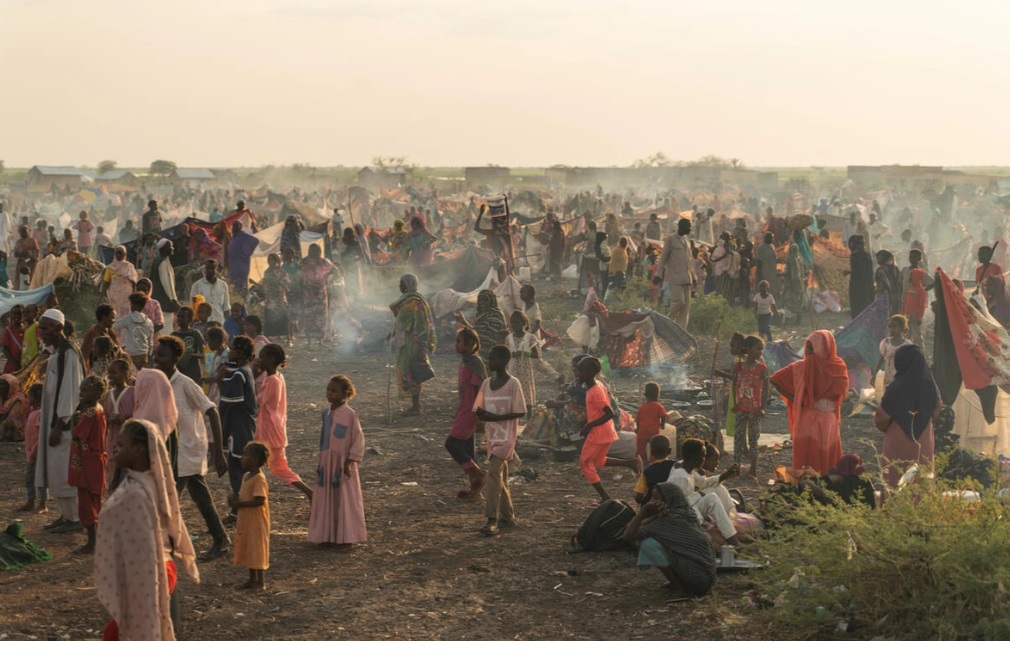A year after the start of the conflict, the UN defines the Sudanese situation as one of the “worst humanitarian disasters in recent history”. Thousands died and almost 9 million people had to leave their homes. But no one talks about it. And no one intervenes
One year after the start of the war in Sudan, which broke out in mid-April 2023, the situation in Sudan is catastrophic and apparently without a way out. The United Nations they speak of at least 15 thousand deaths, but the figure is probably underestimated, and there are millions of civilians who find themselves in conditions of extreme need: among these, more than 730 thousand malnourished children. But the most dramatic fact concerns the record number of refugees and displaced persons almost 9 million, second l‘UN High Commissioner for Refugees (UNHCR). Most of these (more than 6 million) are internally displaced, while another 2 have found refuge in neighboring countries, especially in Chad, Egypt and South Sudan.
Almost 20 million minors have not been to school for a yearor, while I am 25 million people need urgent humanitarian assistancebecause they risk dying of hunger or due to poor sanitary conditions, also because they are alone a third of hospitals are currently functioning. In addition to children, women are also among the most vulnerable categories and many have suffered violence. The Sudanese one is «one of the worst humanitarian disasters in recent history», say the United Nations, but also one of the least mediatized crises.
Il conflict that broke out last year year sees the Sudanese army of General Abdel Fattah al Burhan pitted against the paramilitary group Rapid Support Forces (RSF), led by Mohamed Hamdan Dagalo (known as Hemedti). The latter had refused, at the end of 2022, to integrate its militias into the regular army. After the first dramatic clashes in the capital Khartoum, the violence then spread to other areas of the country. In particular, the Darfur region has once again become the center of very violent clashes also due to the interests linked to the exploitation of gold mines by the RSF, which descends from the infamous Janjawid, who in the past had already been responsible for massacres and atrocities in this region. In response, the regular army began bombing all the territories controlled by the militias, causing many civilian casualties. Darfur today is the region with the highest number of internally displaced people (more than 2 and a half million according to UNHCR). Last week another 5-7 thousand people had to flee from El-Fasher, due to new attacks, also condemned by the Secretary General of the United Nations Antonio Guterres: «Two generals who decided to take up arms and until now have hindered any attempt at diplomatic mediation». Meanwhile, the endless exodus, especially of women and children, continues.
Over the months, the war became increasingly bloody. The RSF has had the support of the Russian Wagner Group and the United Arab Emirates from the beginning, while the Sudanese army is supported by Egypt. After some attempts at a truce, especially at the beginning of the conflict – which were almost always not respected – the situation worsened drastically. Among the consequences is the lack of electricity, which has put hospitals in particular difficulty. The few still functioning can barely take care of the war wounded. From March 17th, Emergency managed to open a pediatric clinic in the capital, within the “Salam” cardiac surgery centre, to provide support in the care of children. This was an important turning point after the association was forced to close centers in Mayo, Nyala and Port Sudan at the start of the war.
However, the emergency does not only concern the internal management of hospitals, but also the lack of supplies and medicines which should arrive in the country by sea. Recent threats and attacks in the Red Sea by the houthi of Yemen have further complicated the situation and blocked ships transporting supplies.
At the beginning of March the UN Security Council again called for an immediate ceasefire for Ramadan and asked to allow access to humanitarian aid. Unfortunately, however, the truce was not reached, because the two parties could not reach an agreement. The deputy executive director of the World Food Program (WFP), Carl Skau, said that joint efforts by the international community are urgently needed to combat the food crisis and prevent it from becoming the largest in the world. So far, however, in the face of a aid plan estimated at $2.7 billion, only 6% was raised.
One year after the start of the conflict, its end still seems distant and unpredictable. Violations of international law reported following violence committed by warring parties require immediate attention and response. As well as the reaction to the very serious famine in the country, also due to the interruption of agricultural activities, which could cause thousands more victims. In the Conference held on 15 April in Paris, the European Union has declared that it will work to raise 2 billion euros for a new aid plan in Sudan. At the beginning of the Conference, German Foreign Minister Annalena Baerbock declared that «together we can avoid a terrible food catastrophe, but only if we act now».
